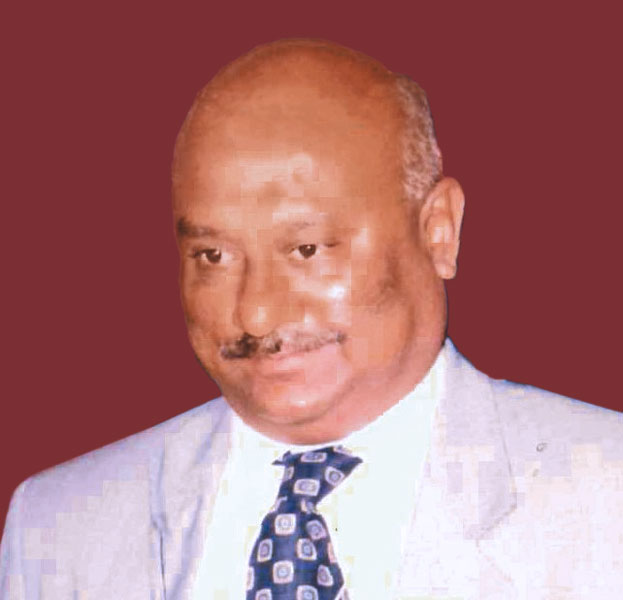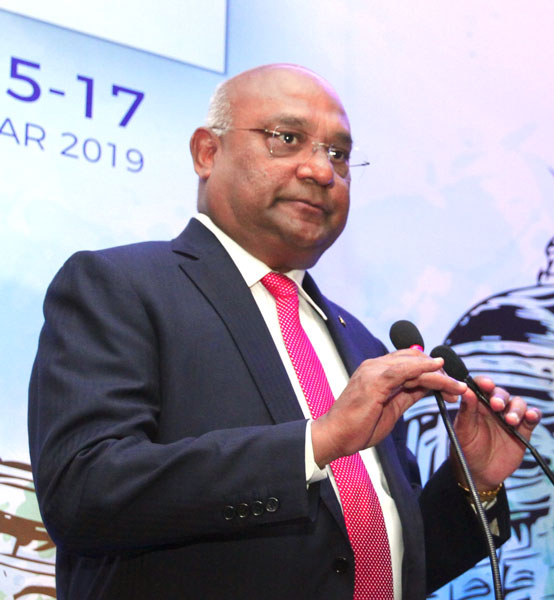
At the Disha training event held in Kolkata recently to train incoming district governors and district leaders in our zones, RI Director
C Basker conveyed some serious messages through what appeared light-hearted talk.
First of all, he said at Antakshari, the previous night’s fellowship event, where all the participants including senior leaders had to sing a song of their choice, he had rediscovered the “collaborative and supporting” structure of Rotary. “I know very well that I can’t sing; so when the person who conducted Antakshari asked me, I bought myself some time. And when I started singing, people around me (in his team) realised that I can’t sing and many of them, particularly PDG Subra (N Subramanian, RID 3011), supported me so well. I thank them. But the message from last night is that don’t worry about your targets; be it in membership or TRF, once you decide to do your best, those around you will support you.”
Basker then had the audience in splits by saying that the previous day “PDG Rajani Mukerji commented to me: ‘You’ve become very serious these days.’ It got me thinking and I realised what he says is true. When I joined Rotary I was a very happy man… a happy Rotarian.”
Don’t worry about your targets; be it in membership or TRF, once you decide to do your best, those around you will support you.
He said he was sharing his entire Rotary journey that day to show the assembled district leaders “how an ordinary person can become better and rise to the rank of an RID.” He joined Rotary in 1988 and was “happy to be a Rotarian; if I wanted to go for a meeting I went, or else I didn’t go, till I got elected as my club’s president. Then I become a worried man,” he added, amidst roaring laughter.
At that time his club — RC Karur — had only four members. So “just like last evening when I sought some time to sing and then delivered, I thought I would buy some time. I told the other three guys I know nothing about leading a club, I’ve not even been a club officer, so one of you become the president for a year and I will take on this responsibility the next year. But they said all the three of us have already been presidents more than twice!”
Having little choice, he agreed to lead the club in the coming year, “totally worried how I could head a club with just four members. So I ran around before my installation and convinced my friends to join Rotary.”
The day he was installed, he inducted 30 new members and the day his term ended, the club had 46 members. “And all the 46 were working people. I did not induct people just to show the governor that I had increased membership in our club. Every single person I inducted stayed back in the club. If you invite 40 right people, they will not only stay behind but they will support you.”
That year his club served the local community with such earnestness and passion that “looking at the media reports, the local MLA offered to join our club and subsequently became a minister in the Tamil Nadu government. Imagine what this did for Rotary’s public image!”
Basker announced to a huge applause that from 1991 (his year as club president), his club had grown from 46 to 430 members today, becoming the second-largest club in India. “It wasn’t very difficult to grow the membership. All the district membership chairs here, if you make up your mind, along with the club presidents and officers, to invite worthy people into the clubs, it can happen.”
The RI Director added that his performance was recognised and the district chose him to become a governor. When he became a governor, “from a worried man I became a responsible man”. He found that of the 56 clubs in his district only 44 were active and functional and merged the non-functional clubs with the functioning ones. By the end of the year the district’s membership grew by 10.2 per cent. He urged his clubs to do more service projects and prior to attending the International Assembly took the trouble to learn how matching grants were done, urged his club presidents to give him proposals for such grants and “that year, of the 44 functional clubs, 42 did a matching grant by themselves, not the district.”
Subsequently he became a Rotary Coordinator and in 2013–14, Zone 5, “for which I was responsible, contributed 35 per cent of the world’s membership growth. And, when I became Director I became serious… looking not at our membership growth or TRF contributions (which were growing) but other anomalies and thought if we are not going to put our house in order, who else will do it?”






